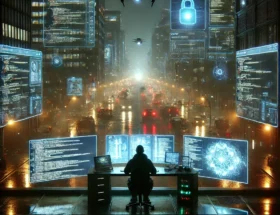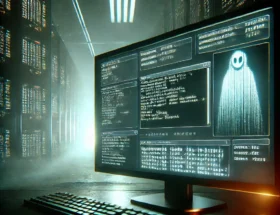Eric, a software engineer known for his persistence, was assigned to debug a legacy system. The codebase was vast, filled with patches from years of maintenance. As he traced a particularly elusive bug, the system logged a strange message: “Infinite Debugging Mode Activated.”
Confused, he found himself trapped in an endless loop of compiling and error messages, each one different but linked. The errors began to reference files that didn’t exist in the repository—files with names like “regret.dat”, “choice.log”, and “path_not_taken.py.”
Eric ran a script to map the dependencies, and that’s when the anomaly appeared. The code wasn’t just a program; it seemed to be drawing on data from his life—emails, private conversations, and even regrets he had forgotten. The log files were revealing his own unresolved choices, each linked to lines of code.
The deeper he dug, the more the errors resembled questions about his life: “Why did you abandon the startup?”, “Who was the one that got away?” The program wasn’t just asking him to fix bugs; it was forcing him to confront his past.
He tried to revert the changes, but the console returned: “There is no undo for life.” As panic set in, Eric noticed a new function that had appeared in the code: “reconcile_self()”. The parameters it required weren’t technical—they were personal.
He hesitated, then ran the function with a mix of emotions as inputs. The program compiled successfully, and for the first time, a calm silence filled the room. The log displayed a single message: “Debugging Complete. Embrace the next version.”







